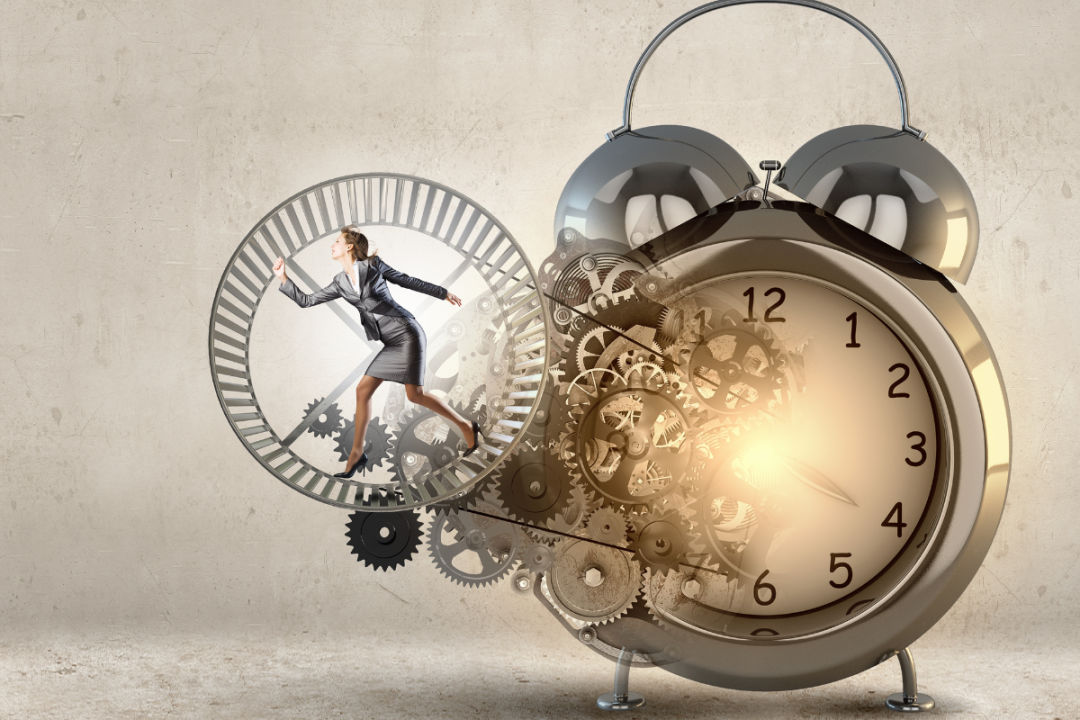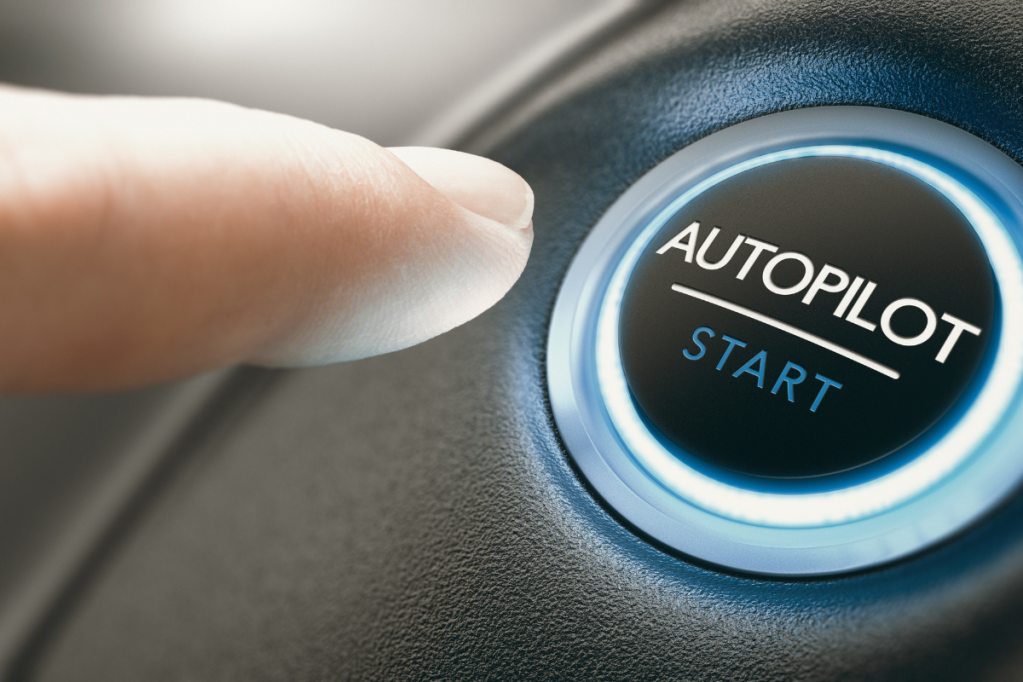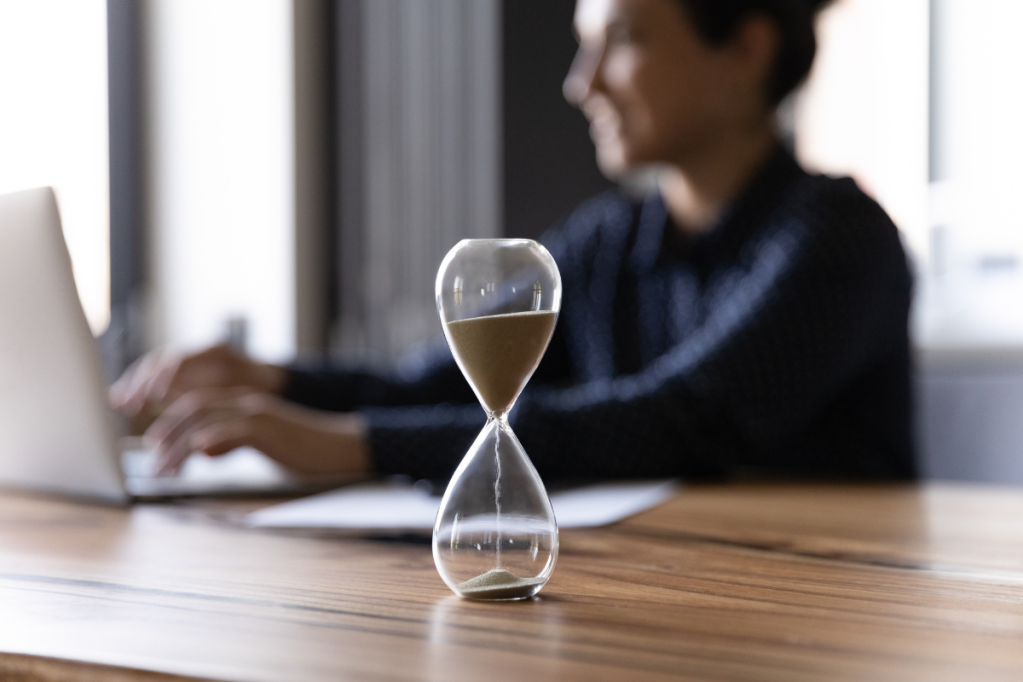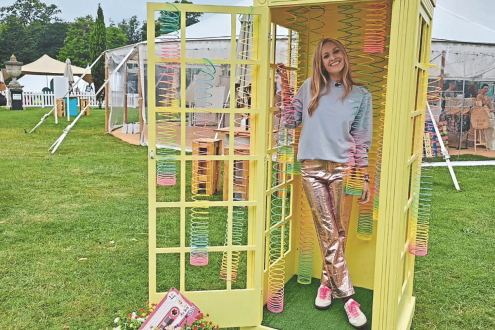Are you living life on autopilot?
Here's how to stop sleepwalking through your days, ditch the autopilot, and embrace the discomfort of uncertainty

While operating on autopilot is often the path of least resistance, especially in the face of trauma, it doesn’t leave us much room to grow or change. Find out how to step out of your comfort zone and reap the rewards.
Despite the natural impulse to grow, at times this drive can be stunted. We can become so caught up in the daily grind that we stop seeing the beauty of life and just get through the day, the week, the year, putting off happiness for another time, not fully conscious of life and all it has to offer.
We have a natural desire to be consistent and are most happy when all our beliefs and values line up. Our brain prefers things to be as expected, and does its best to keep it that way. When information fits our framework or we are in situations we know, we can run on autopilot, a place our brain likes to be. When everything fits and there are no surprises, we experience less internal discomfort. We spend much of our lives in this comfortable state – but it brings with it some problems.
To stay in autopilot, our brain needs external inputs to be reasonably constant. In simple terms, this translates to a life in which we prefer to know how things will be and where we can follow the same patterns. The situations and experiences we encounter fit our mental map and we file them away without paying much attention. This is why weeks can feel like they go by in a blur. There is little to take notice of or deeply consider.
We go through the same routines, take the same routes, see the same people, engage in the same behaviours, without really looking up and thinking what we want from life. There are many good things in the familiarity, but it can also impact us negatively in subtle ways. It is like driving a well-known route; it is so easy to follow that we might stop taking notice of what’s around us. We know exactly where we are going and we always end up at the same place.
When things are not quite as we expect or we have to do things in a different way, it pushes us out of autopilot and can leave us with a sense of discomfort. It opens up a small gap of uncertainty and puts us in that unsettling in-between place that our brain dislikes so much. Being in this space can leave us feeling vulnerable, as we struggle with not being able to do things so easily or dealing with the unknown. This is even harder when our capacity is full.
Stepping out of autopilot can feel unsettling. We like what we know, which is why we can find even small changes hard (don’t ask my husband what I’m like when I get a new version of a computer operating system). No wonder it can feel tough when we face bigger issues.
When we stay in autopilot, we can end up living half a life, ignoring the fact that this life is all we have. Slowly, over time, our inner and outer lives become out of sync. The life we are living no longer matches up with what we truly want. We might be stuck in a job that is driving us into the ground, a relationship that is not fulfilling our needs. We plaster over the cracks, ignoring things that are not quite right, and in some cases we are no longer sure what we want from life or who we are. We prefer the certainty of potential misery to the uncertainty of the unknown.

Eliminating discomfort
In many ways, modern life has become a quest to eliminate discomfort. There is very little that we have to wait for (that unsettling in between), so we do not have the same opportunities to tolerate discomfort and get used to it.
When you think about how things used to be for those of us who grew up in the seventies and eighties in the UK, so much has changed. In those days, there were only four TV channels, and even on those channels there was not always something on. We watched TV live and had to sit through the adverts, we used Ceefax to look up the sports results, and we usually had to wait a week before the next episode of our favourite show.
We had to make phone calls on a landline, and if no one was in, we would leave a message or try later. This also meant the risk of speaking to your friend’s parents or siblings, who you might not know. We had to post letters and then wait for the reply.
When you met up with people, you had to make a plan and stick with it, and if someone was late, you had no option but to wait. If you wanted to buy something, you had to go into town and hunt around the shops to find it. When I started driving, I used to have to print off directions and read a map. I frequently went off course and then would struggle to find my way back. Even in my early twenties, if I wanted to check my emails, I had to go to the library or an internet cafe, or wait until the next day at work.
It is a truism, but it is one worth repeating. Everything is instant now. We do not even have to leave the house if we want something. If we search long enough online, we can generally find exactly what we want and even get it delivered the same day. We have hundreds of TV channels, can fast-forward through adverts, and watch episodes one after the other; we can access the internet and other people 24/7. We can surround ourselves with people who hold similar views. Even when we are stuck in traffic, our phone can tell us for how long and offer an alternative route. As a result, we are not confronted by uncertainty or challenged much on our views.
We are rarely in that unsettled in-between place, even in lesser ways. Avoiding change and discomfort in all these small ways and trying to keep tight control of life gives us little practise when a bigger change happens.

Rather than trying to eradicate uncertainty and inconvenience (which is ultimately impossible), it is much better to gain experience of these things so we can learn to tolerate and manage them, and gain greater confidence in ourselves. We have a chance to see that the discomfort goes away when we do this, and that we do not need to have a perfect plan or know exactly how things will go to enjoy something.
Trauma is often described as an awakening. The power of a traumatic experience, the depth of feelings and the shock it can bring shake things up in a way that is rarely possible otherwise. Before trauma, we can become so comfortable in autopilot that we end up sleepwalking through life. It is only when we face struggle that we start to think about an alternative.
Life before trauma and life after trauma can feel like two different worlds. To some extent, our pre-trauma life is really life in denial. We hold a naive view in which we believe we are exempt from pain and suffering. When we experience trauma, it confronts us with existential truths, but in a strange way this can be freeing. It awakens us to the life we are living, but it can also awaken us to the life we want.
This can link us back to our natural motivations and desire to grow – a chance to live again and live differently, waking us up to life and all its future potential. These experiences allow us to notice and value things that we might not have seen before and lets us look with fresh eyes at what we want and what matters most to us.
Trauma can be a wake-up call to become true to ourselves and think about what we want from life. It is only by letting go of our old existence that we can begin to consciously choose how we want to live now and to look at what makes life worth living. This allows us to dismantle our beliefs and goals and, in time, slowly build new mental maps that are aligned with what we truly want.
Images: Shutterstock









